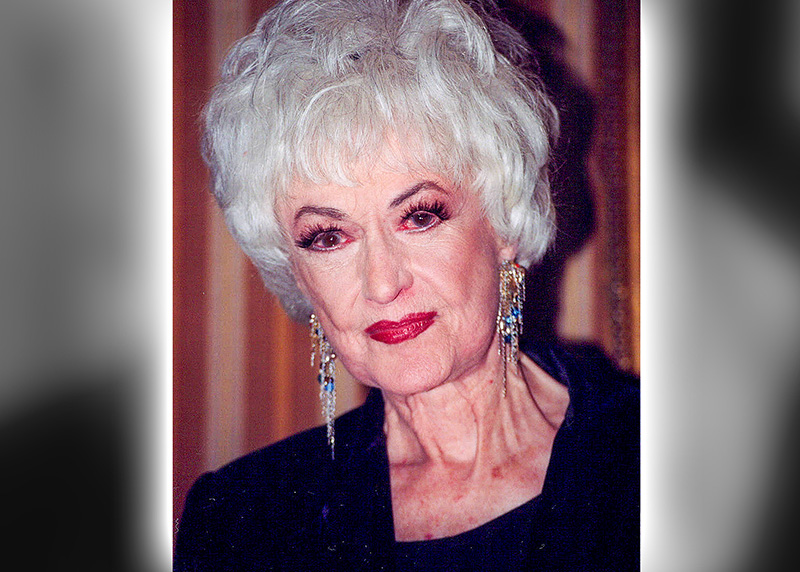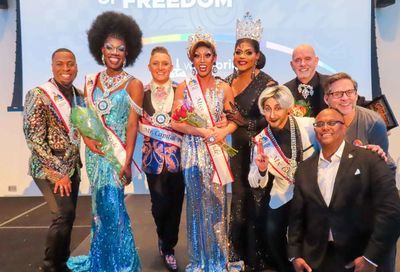Georgia Teacher Fired After Reading A Book With Nonbinary Character
Katie Rinderle was fired by the Cobb County School District after reading My Shadow Is Purple to her fifth-grade class.

An Atlanta-area teacher was fired after reading a children’s book featuring a nonbinary character to her fifth-grade class.
In a 4-3 decision last week, the Cobb County School Board fired Katie Rinderle after she read My Shadow Is Purple to her class. The book centers around gender nonbinary themes as a child finds that their shadow not pink like their mother’s, or blue like their father’s, but purple – a mix of the two. She said purchased the book at a district-approved book fair earlier this year.
Rinderle, who has been teaching for 10 years, is one of the first, if not the first, teacher in Georgia to be fired under a pair of laws restricting LGBTQ content in classrooms.
One of the laws is a parental rights law that explicitly grants parents the right to “direct the upbringing and the moral or religious training of their children” and review instructional materials within schools. The other is a “Don’t Say Gay”-style law prohibiting “divisive concepts and ideologies from invading the classroom,” which critics have condemned as amounting to censorship.
Superintendent Chris Ragsdale recommended Rinderle be fired after a parent complained about the book. The school board voted to narrowly terminate her, with the vote falling along party lines, with the board’s four Republicans voting in favor and the three Democrats on the board voting against the motion.
“I am disappointed in the district’s decision to terminate me for reading an inclusive and affirming book – one that is representative of diverse student identities,” Rinderle said in a statement issued by her lawyers. “The district is sending a harmful message that not all students are worthy of affirmation in being their unapologetic and authentic selves.”
Rinderle’s lawyer Craig Goodmark, said that the pair of laws used to justify his client’s termination “have operated to censor teachers in the classroom” with “no legitimate explanation,” as both are vague, failing to clearly define what constitutes “divisive,” and may be interpreted differently by different people, depending on individual preferences or biases.
“To fire a teacher under a law that no two people could agree on is wrong. Ms. Rinderle, like other Georgia educators, does not know where the lines are drawn when it comes to sensitive, controversial, or divisive concepts,” Goodman said. “After two days of trial, we still do not know.”
Goodman told Axios that “we’re looking at every legal avenue,” including appealing the decision to the State Board of Education.
Georgia is not the only state with laws restricting content in public schools. At least 11 states within the past two years have restricted discussions of gender and sexual identity in classrooms.
The state of Florida has become infamous for the restrictions it has sought to impose on teachers and classroom content, including passage of the infamous “Don’t Say Gay” Bill, which prohibits discussions of sexuality in public schools from grades K-12 – except in rare instances – while also making it easier to challenge and remove books from school libraries.
The Florida Department of Education has also passed several rules designed to stifle LGBTQ visibility and enforce gender-conforming behavior, with teachers facing consequences ranging from potential suspension or the loss of teaching license if they violate those rules or allow children to engage in activities without the express permission of their parents. Among those rules are requirements to report and punish students who use restrooms not matching their assigned sex at birth, restrictions on the use of names, nicknames, and pronouns, and to obtain parental permission for extracurricular activities, as well as allowing parents to “opt out” of lessons on topics they may find objectionable.
While expressing support for the laws on classroom content, the Georgia Department of Education does not offer guidelines as to what may be considered “harmful to minors,” leaving such definitions to be decided by individual school boards.
“This decision, based on intentionally vague policies, will result in more teachers self-censoring in fear of not knowing where the invisible line will be drawn,” Rinderle said in a statement. “Censorship perpetuates harm and students deserve better.”
Support Metro Weekly’s Journalism
These are challenging times for news organizations. And yet it’s crucial we stay active and provide vital resources and information to both our local readers and the world. So won’t you please take a moment and consider supporting Metro Weekly with a membership? For as little as $5 a month, you can help ensure Metro Weekly magazine and MetroWeekly.com remain free, viable resources as we provide the best, most diverse, culturally-resonant LGBTQ coverage in both the D.C. region and around the world. Memberships come with exclusive perks and discounts, your own personal digital delivery of each week’s magazine (and an archive), access to our Member's Lounge when it launches this fall, and exclusive members-only items like Metro Weekly Membership Mugs and Tote Bags! Check out all our membership levels here and please join us today!























You must be logged in to post a comment.